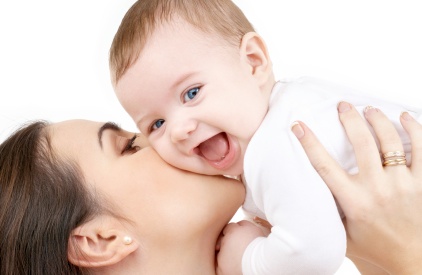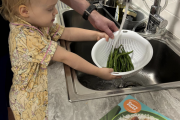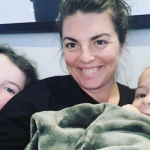Separating From Your Bub – What’s Best?


Image source
Always say goodbye to your baby, but don’t let them see you leave. Leave your baby with a toy that smells like you, but make sure it’s not too reminiscent of you actually being there because that will only provide further distress. Wave from the window when you walk out – but not for an extended period or else your baby will point to the window all day. Some crying is good – it means your baby has a good attachment with you, unless some crying turns into excessive crying in which case your baby will struggle throughout the day. Make sure you don’t leave your child when he/she is tired, that will only make the anxiety symptoms worse. However, ensure they are adequately sleepy so that they do in fact sleep while at daycare/preschool. Separation anxiety is at it’s worst from 12-24 months, unless of course your child experienced severe separation anxiety at 4-7 months when they discovered that things not in their vision still existed.
With all these mixed messages around separating from your baby and potential separation anxiety it’s no wonder parents are left dumbstruck by what methods work best. The truth of the matter is this; every child is different. What works for one child, may not work for the other. So whatever the well-meaning mothers in your mother’s group are spouting as a sure-fix method, chances are good that your baby may need a different technique.
What you can do however is surround yourself with the knowledge, skills and ideas around how to deal with separation anxiety and choose what feels as if it fits best for your child. These are the important things to remember when separating from your baby:
- Separation anxiety in a young child is normal and expected. Expect that your child will be distressed when you first leave them, however they often calm down after you’ve left.
- Young children have become masters at understanding their environment, even though they can’t verbalise what they’re noticing. This means that they notice when you are anxious/worried/sad/afraid/happy and that in turn impacts their feelings. Even though leaving your baby may be difficult for you as a parent, try to stay calm when saying goodbye to your child.
- DO say goodbye to your child. Leaving without telling them will only build distrust.
- Be consistent with how you leave and say goodbye to your child. Young bubs thrive on routine and structure.
Overall, separation anxiety is a difficult experience for parents and children alike. It is however one that with consistency will become easier to manage over time.
Stefanie Schwartz is a Child & Adolescent Clinical Psychologist & founder of GroupWorx Psychology. GroupWorx offers group therapy programs for children in Sydney’s Eastern Suburbs and FREE online child psychology advice. Visit www.groupworx.com.au for more information.










